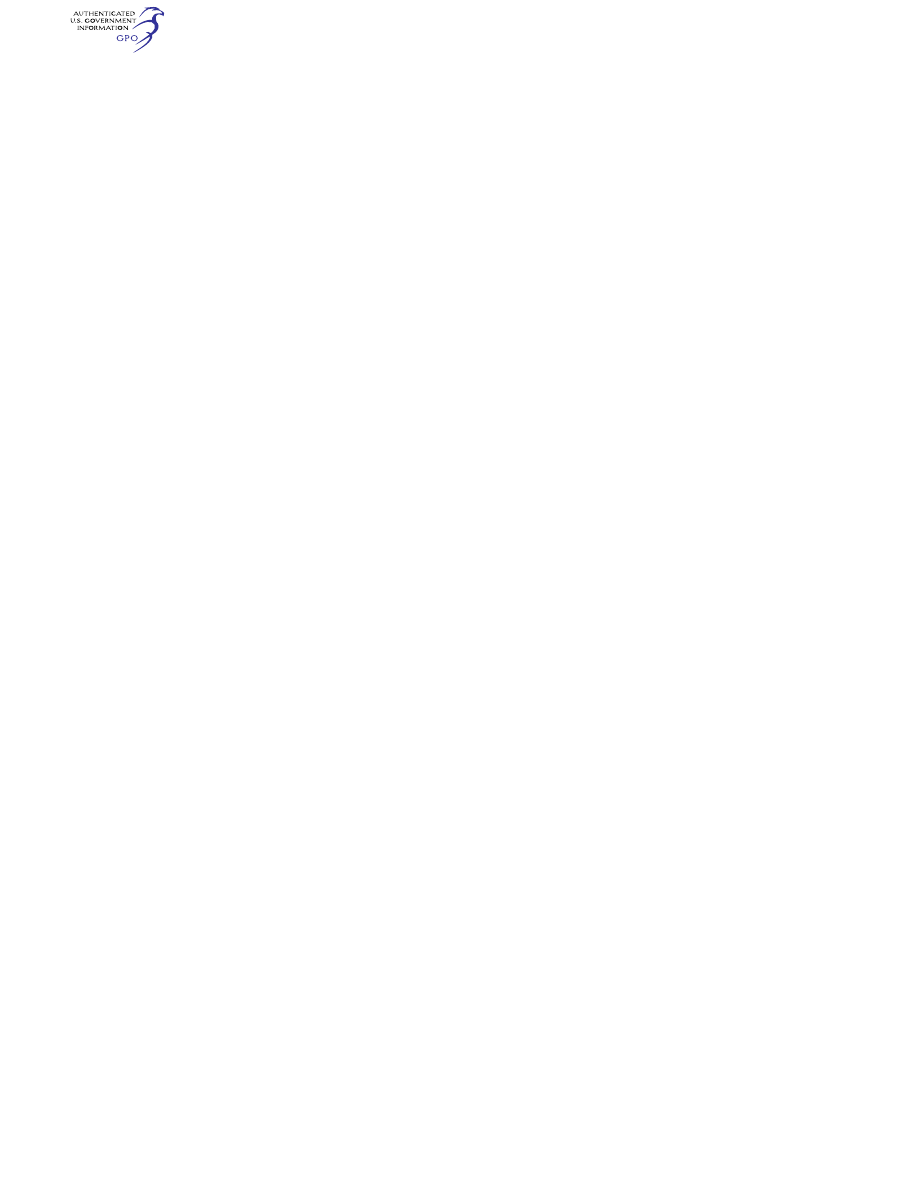
529
Federal Aviation Administration, DOT
§ 27.923
(3) Following the in-flight shutdown
of all engines, in-flight engine restart
capability must be provided.
[Doc. No. 5074, 29 FR 15695, Nov. 24, 1964, as
amended by Amdt. 27–11, 41 FR 55469, Dec. 20,
1976; Amdt. 27–23, 53 FR 34211, Sept. 2, 1988;
Amdt. 27–44, 73 FR 11000, Feb. 29, 2008; Amdt.
27–51, 88 FR 8737, Feb. 10, 2023]
§ 27.907
Engine vibration.
(a) Each engine must be installed to
prevent the harmful vibration of any
part of the engine or rotorcraft.
(b) The addition of the rotor and the
rotor drive system to the engine may
not subject the principal rotating parts
of the engine to excessive vibration
stresses. This must be shown by a vi-
bration investigation.
(c) No part of the rotor drive system
may be subjected to excessive vibra-
tion stresses.
R
OTOR
D
RIVE
S
YSTEM
§ 27.917
Design.
(a) Each rotor drive system must in-
corporate a unit for each engine to
automatically disengage that engine
from the main and auxiliary rotors if
that engine fails.
(b) Each rotor drive system must be
arranged so that each rotor necessary
for control in autorotation will con-
tinue to be driven by the main rotors
after disengagement of the engine from
the main and auxiliary rotors.
(c) If a torque limiting device is used
in the rotor drive system, it must be
located so as to allow continued con-
trol of the rotorcraft when the device
is operating.
(d) The rotor drive system includes
any part necessary to transmit power
from the engines to the rotor hubs.
This includes gear boxes, shafting, uni-
versal joints, couplings, rotor brake as-
semblies, clutches, supporting bearings
for shafting, any attendant accessory
pads or drives, and any cooling fans
that are a part of, attached to, or
mounted on the rotor drive system.
[Doc. No. 5074, 29 FR 15695, Nov. 24, 1964, as
amended by Amdt. 27–11, 41 FR 55469, Dec. 20,
1976]
§ 27.921
Rotor brake.
If there is a means to control the ro-
tation of the rotor drive system inde-
pendently of the engine, any limita-
tions on the use of that means must be
specified, and the control for that
means must be guarded to prevent in-
advertent operation.
§ 27.923
Rotor drive system and con-
trol mechanism tests.
(a) Each part tested as prescribed in
this section must be in a serviceable
condition at the end of the tests. No in-
tervening disassembly which might af-
fect test results may be conducted.
(b) Each rotor drive system and con-
trol mechanism must be tested for not
less than 100 hours. The test must be
conducted on the rotorcraft, and the
torque must be absorbed by the rotors
to be installed, except that other
ground or flight test facilities with
other appropriate methods of torque
absorption may be used if the condi-
tions of support and vibration closely
simulate the conditions that would
exist during a test on the rotorcraft.
(c) A 60-hour part of the test pre-
scribed in paragraph (b) of this section
must be run at not less than maximum
continuous torque and the maximum
speed for use with maximum contin-
uous torque. In this test, the main
rotor controls must be set in the posi-
tion that will give maximum longitu-
dinal cyclic pitch change to simulate
forward flight. The auxiliary rotor con-
trols must be in the position for nor-
mal operation under the conditions of
the test.
(d) A 30-hour or, for rotorcraft for
which the use of either 30-minute OEI
power or continuous OEI power is re-
quested, a 25-hour part of the test pre-
scribed in paragraph (b) of this section
must be run at not less than 75 percent
of maximum continuous torque and the
minimum speed for use with 75 percent
of maximum continuous torque. The
main and auxiliary rotor controls must
be in the position for normal operation
under the conditions of the test.
(e) A 10-hour part of the test pre-
scribed in paragraph (b) of this section
must be run at not less than takeoff
torque and the maximum speed for use
with takeoff torque. The main and aux-
iliary rotor controls must be in the
normal position for vertical ascent.
(1) For multiengine rotorcraft for
which the use of 2
1
⁄
2
minute OEI power
VerDate Sep<11>2014
09:06 Jun 28, 2024
Jkt 262046
PO 00000
Frm 00539
Fmt 8010
Sfmt 8010
Y:\SGML\262046.XXX
262046
jspears on DSK121TN23PROD with CFR